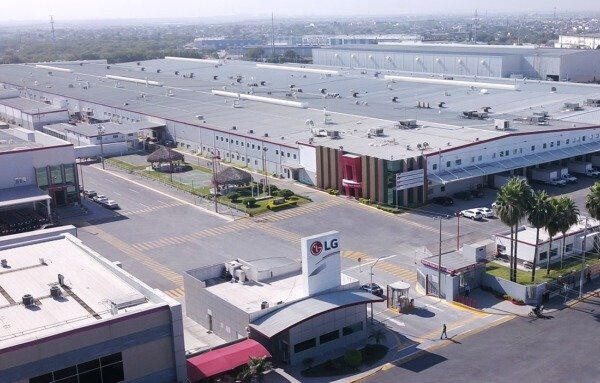
Seoul, South Korea - South Korean smartphone and home appliance giants are facing an emergency as U.S. President Donald Trump announced the imposition of reciprocal tariffs on major import countries on April 2nd (local time). South Korea (26%), along with Vietnam (46%), Thailand (36%), and India (26%), are among the targeted nations. This development has sent shockwaves through the South Korean tech sector, as many companies have significant production facilities in these countries.
Smartphone Profitability Under Threat
The smartphone industry is particularly concerned. Samsung Electronics, the world's second-largest smartphone maker, reportedly manufactures over 50% of its smartphone volume in its plants located in Bac Ninh and Thai Nguyen in northern Vietnam. The remaining production comes from facilities in India, Indonesia, and Gumi, South Korea. A significant portion of the Vietnamese output is destined for the U.S. market, making Samsung directly vulnerable to the new reciprocal tariffs. Furthermore, approximately 22% of Samsung's smartphone shipments last year were produced by outsourced factories, primarily in China, which now faces a potential tariff rate of 54%.
Samsung is initially expected to leverage its existing inventory in the United States to buffer against the immediate impact of the tariffs. Shipments of the recently launched Galaxy S25 series had already been dispatched to the U.S. before the tariff announcement. However, future shipments, including the highly anticipated foldable phone series and other smartphones and tablets slated for release in the latter half of the year (July-December), are likely to be affected.
Apple, Samsung's primary competitor in the smartphone market, faces a similar predicament. In response to escalating U.S.-China trade tensions, Apple has been diversifying its production away from its primary manufacturing hub in Zhengzhou, China, shifting some output to India, Thailand, and Vietnam. With approximately 90% of iPhones still being manufactured in China and the alternative locations also facing high reciprocal tariffs, Apple's stock price reportedly fell by over 7% in after-hours trading following the announcement. While the parallel impact on both Samsung and Apple may limit significant shifts in market share, concerns are mounting about a potential decline in profitability across the smartphone industry.
Appliance Makers Re-evaluating Production Strategies
The home appliance sector is also on high alert. Both Samsung and LG Electronics manufacture a substantial portion of their appliances in Vietnam and Thailand for export to the United States. This strategy has been driven by the lower labor costs in these regions, enabling mass production for the U.S. market. However, tariffs reaching as high as 46% may force these companies to reconsider their supply chains.
Both Samsung and LG are considering increasing production at their existing facilities in Mexico as an immediate countermeasure. Under the United States-Mexico-Canada Agreement (USMCA), goods manufactured in Mexico that meet the rules of origin continue to be exempt from tariffs when entering the U.S. This includes home appliances.
However, given the uncertainty of potential future tariffs on Mexico, both companies are also reportedly exploring options to increase production at their existing U.S.-based factories. Additionally, display and electronic component manufacturers with production facilities in Vietnam, such as Samsung Electro-Mechanics, LG Display, and LG Innotek, are also carefully evaluating their supply chains and potential adjustments in response to the changing tariff landscape.
Semiconductors and Automobiles Face Uncertainty Despite Avoiding Direct Tariffs
While not directly subject to the reciprocal tariffs announced on April 2nd, the automobile industry faces a separate challenge with the imposition of individual item tariffs of 25% taking effect on the same day. The recent completion of Hyundai Motor Group's electric vehicle plant in Georgia offers a degree of relief, providing increased local production capacity in the United States.
The semiconductor industry also remains concerned, as individual items are slated for tariff increases. While battery manufacturers like LG Energy Solution, Samsung SDI, and SK On already have production bases in the U.S., they may face increased raw material costs due to import tariffs. The steel and aluminum industries have already been subject to a 25% tariff since March 12th.
An official from a company with a factory in Vietnam commented, "President Trump has a history of imposing and then suspending tariffs, so we are currently monitoring how the situation will unfold. We are considering various measures, including increasing production in other regions as an alternative to Vietnam."
Another industry representative stated, "These reciprocal tariffs are scheduled to take effect on shipments starting from April 9th, so we are hoping for a reversal through government-level responses. We also anticipate that the Vietnamese government will not remain passive."
Some analysts point out that the tariff increases will ultimately burden American consumers. According to a report by CNBC, the U.S. Consumer Technology Association projects that laptop prices could increase by up to 68%, and smartphone prices could rise by as much as 37%.
This situation underscores the delicate balance of global supply chains and the significant impact that trade policy shifts can have on multinational corporations and consumers alike. South Korean companies are now scrambling to adapt their production strategies to mitigate the financial repercussions of these new tariffs.
[Copyright (c) Global Economic Times. All Rights Reserved.]



























